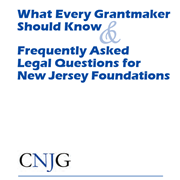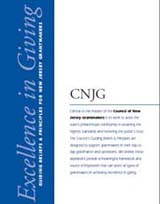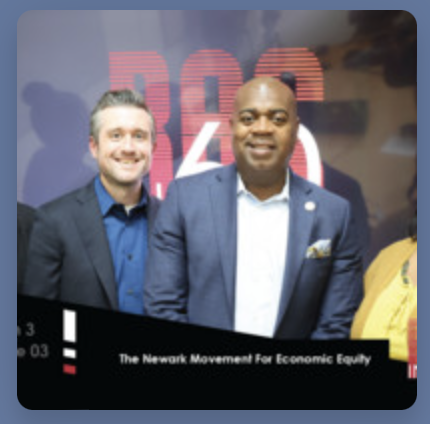Site Search
- resource provided by the Forum Network Knowledgebase.
Search Tip: Search with " " to find exact matches.
Narratives shape policy, sway elections, and determine whose voices are heard or silenced. Media is not just a communication tool: it is civic infrastructure, as essential to democracy as roads and schools. Yet the systems that shape our shared understanding are collapsing, consolidating, or being strategically captured.
This four part Media Learning Series designed in partnership with Independence Public Media Foundation is for funders who recognize that the fight for justice, equity, and democracy is also a fight over the stories we tell, and who gets to tell them. Through four dynamic sessions, we’ll explore how media and narrative power underpin every funder’s work, regardless of sector. Participants will move from conceptual understanding to actionable strategies for funding community-driven media and narrative ecosystems that can endure and adapt over time.
Across the series, you will:
Understand how today’s media systems shape public imagination, democracy, and movement building and why current funding approaches often fall short.
See how community led narrative work fuels organizing, shifts policy, and builds long-term power.
Learn how to assess and invest in the media and information needs of the communities you serve.
Leave with concrete steps, peer connections, and tools to begin or deepen your media funding practice.
SESSION LISTINGS:
Session 1 – Wednesday, 10/8, 12-1 PM via Zoom
Who Tells the Story?: Media, Power, and Philanthropy’s Role in Shaping the Narrative
Session 2 – Wednesday, 10/22, 12-1 PM via Zoom
How Narrative Fuels Organizing, Movement-Building, and Policy Change
Session 3 – Wednesday, 11/5, 12-1 PM via Zoom
Building Community Information Power from the Ground Up
Session 4 – Wednesday, 11/19, 12-2 PM In-person (location TBD)
Taking Action, Learning, and Adjusting: Building a Media Funding Practice that Lasts
We encourage you to attend the entire series, as each series will build on the last. However, we welcome you however you can show up. Recordings and resources will be available after each meeting. The stakes are high and the moment to act is now. Funders who engage today can help ensure that tomorrow’s media landscape reflects the full diversity, truth, and resilience of our communities.
Presented by Philanthropy Network Greater Philadelphia

This guide was designed to help the state’s philanthropic community understand their ethical, legal, and fiduciary requirements and obligations.

- 6 Practices of Trust-Based Philanthropy
- Trust-Based Philanthropy Resources
- Grantmakers for Effective Organizations: Systems Grantmaking Resource Guide
- Solving the World’s Biggest Problems: Better Philanthropy Through Systems Change
- Trust-Based Philanthropy News
- The Holy Grail of Funding: Why and how foundations give unrestricted funding
- The Casey Foundation’s Journey to Equitable Grant-making
- Community-Centric Fundraising
- Vu Le, Nonprofitaf.com
- To Support Shifts in Philanthropic Practices, Foundations Must Reimagine Their Internal Structures and Processes
Doing Good Better, a partnership of the Council of New Jersey Grantmakers and the New Jersey Center for Nonprofits, is a community of funders and nonprofits taking action against the power imbalances and racial inequities in philanthropy, nonprofits, and government.

This includes insights and tips related to board governance, legal compliance, grantee communications, fiscal responsibility, public disclosure, and many other key areas of foundation governance and operations. It is intended to serve as a practical resource to assist foundations in their grantmaking.
Foundations are systems. They have their own cultures and related assumptions, norms, standards, and practices. All of these personal, social, and structural factors affect our ability to learn.
This tool is to help foundations take stock of their learning needs and opportunities with a dispassionate (evaluative) look at themselves as systems and how people work within them.
The tool is based on the work of systems theorist Donella Meadows. Her work resonates because it recognizes both systemic constraints and possible leverage points for addressing them. Meadows identifies a series of leverage points for changing a system, ordered from least to most powerful. We adapted her work to show how each lever can reinforce learning in an organization or system.
Use the tool to examine the list of 12 leverage points, ordered in terms of their power for shifting a system to support learning, from weakest (1) to strongest (12). Higher leverage points produce stronger, broader, more durable change.
According to Meadows, we often are disappointed in the results of systems change efforts because we tend to tweak the least powerful levers in the system — such as skill building or the flow of resources or information. We find this can be true with learning in philanthropy, where many foundations support learning with tools and training alone.
Which leverage points are you currently using to support learning in philanthropy? Where else can you push to make that support stronger?

